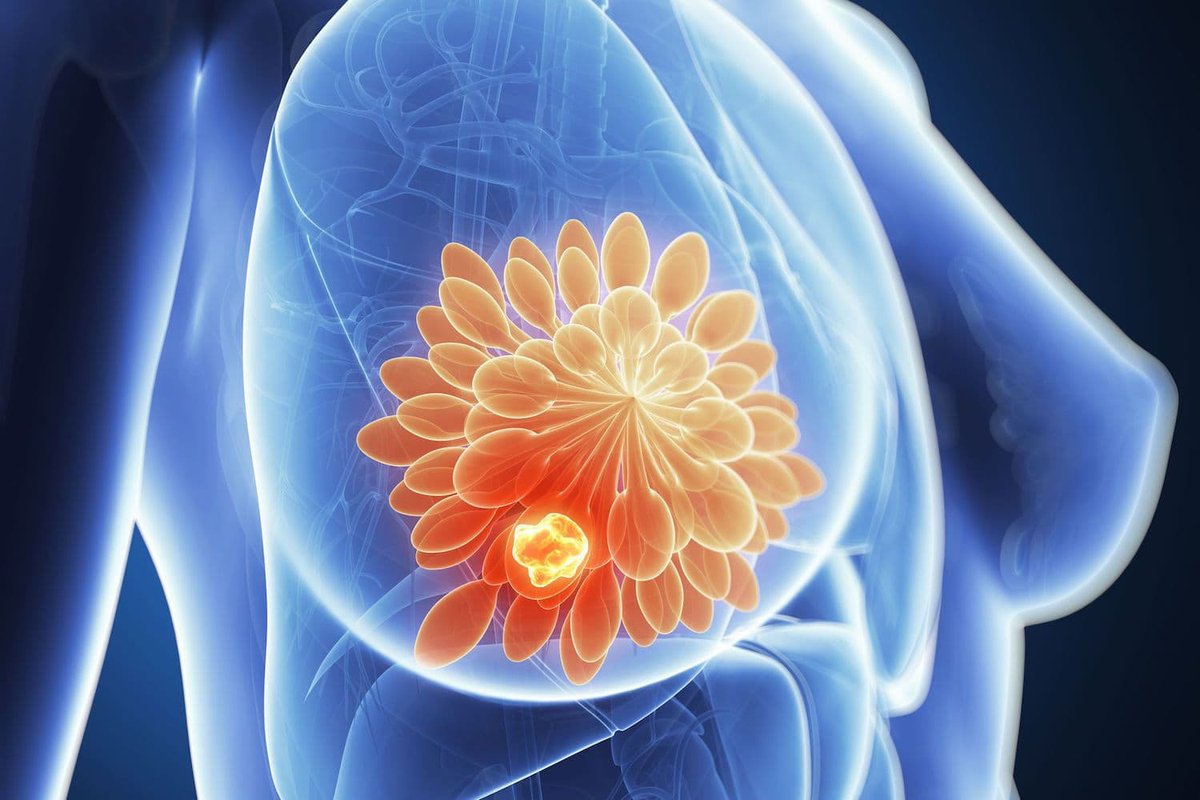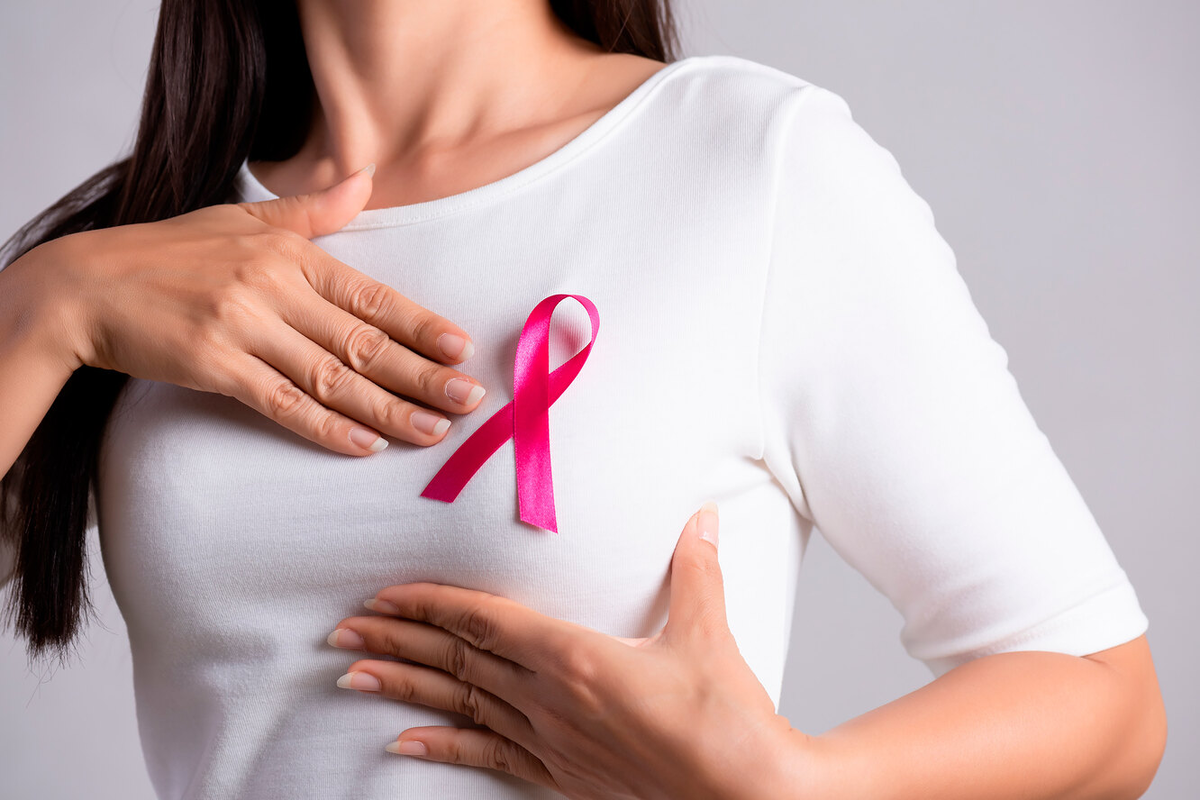Early diagnosis is key to improving the prognosis of the most common cancer, with less invasive and more effective treatments. Recommendations from specialists.
Breast cancer is the leading cause of cancer death in women in Argentina.
More than 90% of people diagnosed with breast cancer in its early stages have a chance of being cured. These figures indicate that early detection and access to regular check-ups are decisive for the prognosis.
Breast cancer is the most common cancer in both Argentina and worldwide.
Each year, more than two million cases of breast cancer are reported and some 680,000 deaths worldwide, according to the Global Cancer Observatory (Globocan), the platform that compiles statistics from the International Agency for Research on Cancer (IARC) of the World Health Organisation (WHO).
In Argentina, some 22,000 new cases are reported each year. This high incidence makes breast cancer the leading cause of cancer death in women in the country. In addition, it is estimated that one in eight women will develop the disease at some point in their lives.
Specialists agree that detecting breast cancer early makes a difference and opens the door to less invasive and more effective treatments.
Early detection improves prognosis
Factors associated with an increased risk of breast cancer include obesity, alcohol consumption, family history, radiation exposure, reproductive and hormonal history, and tobacco use.
Early detection is the decisive factor in improving the prognosis. Nicolás Farah, from the Gynaecology and Mastology Department at the German Hospital, told Infobae that ‘with early diagnosis, the cure rate reaches 90% in breast tumours smaller than 1 cm’.
Along the same lines, Sebastián Alba Posse, a surgical oncologist and breast pathology specialist at the Hospital de Clínicas of the University of Buenos Aires (UBA), said that ‘9 out of 10 patients diagnosed in the early stages have a chance of cure.’
Both professionals emphasised that the earlier the disease is detected, the greater the chances of effective and less aggressive treatment.
Modifiable and non-modifiable risk factors
Adopting an active lifestyle, a balanced diet and regular medical check-ups helps to reduce the risk of breast cancer.
Awareness and accurate information can make a difference in the lives of thousands of women in Argentina, where the incidence of this disease continues to rise.
Risk factors are divided into two main groups: modifiable and non-modifiable.
Among the former, both Farah and Alba Posse highlight obesity, sedentary lifestyles, poor eating habits and excessive alcohol consumption.
‘Lifestyle plays a crucial role in prevention,’ said the specialist from the Hospital de Clínicas.
As for non-modifiable factors, gender, age, and family history play a central role. The disease not only affects older women, but can also occur in young people, so vigilance and monitoring must be constant in all age groups.
Diagnostic methods and screening recommendations
In terms of diagnostic methods, annual mammograms are currently the most effective tool for reducing mortality, with an estimated decrease of between 30% and 40%, according to the specialist from the German Hospital.
The main scientific societies—the National Comprehensive Cancer Network (NCCN), the American College of Obstetricians and Gynaecologists (ACOG), the Argentine Society of Mastology (SAMAS), and the Argentine Society of Radiology (SAR)—recommend starting mammography screening at age 40 for women with no family history, Farah said.
For those with a family history, screening should begin 10 years before the age at which the closest relative was diagnosed.
Breast cancer remains the most commonly diagnosed cancer among women and is the fourth most common cause of cancer death overall, according to the IARC.
Breast ultrasound is used as a complement, especially in women with dense breasts, and is useful for evaluating the status of the axillary lymph nodes.
Along the same lines, Dr. Carlos Silva, medical director and coordinator of the support area at LALCEC, told Infobae that 90% of breast cancer cases detected early can be cured.
The specialist recommended having a mammogram from the age of 40, and in cases of family history, bringing forward the check-ups. ‘By carrying out tests in time, lesions can be found at a very early stage, when the chances of cure are extremely high,’ said Silva.
Having an annual mammogram and consulting with a specialist is a small step with a huge impact on cancer prevention.
Treatments and medical advances
Law No. 26,872 establishes that all women in our country have the right to access breast reconstruction after a mastectomy, with medical indication and interdisciplinary evaluation.
The therapeutic approach to breast cancer has seen significant advances in recent years. Alba Posse explained that treatment is now personalised according to the type and stage of the disease and includes surgery, radiotherapy and systemic therapies such as chemotherapy and hormone therapy.
New developments allow for less aggressive options to be offered while maintaining effectiveness.
In addition, breast reconstruction, a right guaranteed in Argentina by Law 26.872 since 2012, is offered in most cases after surgery, contributing to the physical and emotional well-being of patients.

How to find out your risk of breast cancer
The German Hospital has created a free online platform that allows users to find out their risk level in a few minutes. Meanwhile, the Hospital de Clínicas provides counselling and follow-up for patients with breast disease, and reinforces the importance of participating in awareness campaigns and undergoing screening tests in a timely manner.
‘Early screening and consultations save lives,’ the specialists emphasise.
Habits that help prevent cancer
Weight control, physical activity, and reducing harmful habits are strategies recommended by specialists to reduce the onset of the disease and improve the prognosis in the female population.
Prevention plays a central role in the strategy against breast cancer. The Hospital de Clínicas promotes daily physical activity, a balanced diet, and the elimination of harmful habits such as smoking and alcohol consumption.
‘At the Hospital de Clínicas, we incorporate nutritional counselling into medical consultations, providing healthy eating strategies for patients,’ explained Alba Posse. The Hospital Alemán, for its part, recommends an annual check-up with your gynaecologist as a fundamental measure to increase the chances of cure.
In Breast Cancer Awareness Month, according to estimates by the IARC, the number of cases and deaths from breast cancer is expected to increase worldwide. If current rates continue, by 2050 there will be 3.2 million new cases and 1.1 million deaths from breast cancer per year worldwide.




